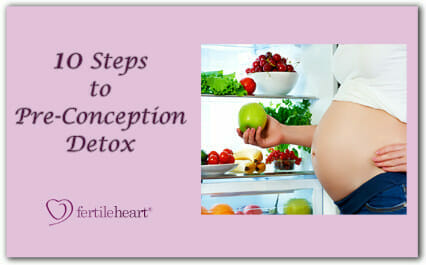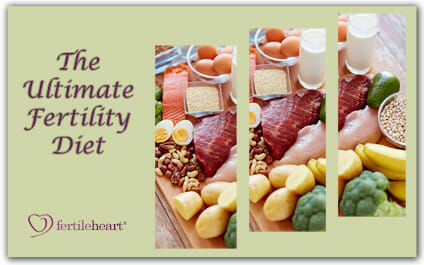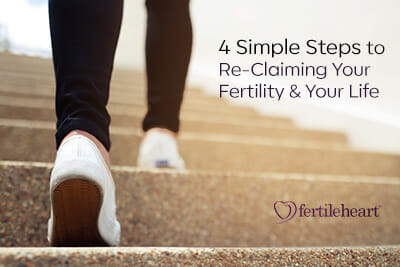The Fertile Heart Approach to Healing Endometriosis: Natural Fertility Boosting Steps to Heal Endometriosis and Move Toward a Full Term Pregnancy
Introduction:
Endometriosis, is one of the most baffling ways our bodies are calling for attention. Affecting millions of women worldwide it is characterized by the growth of endometrial tissue outside the uterus, causing pain and impacting daily life.
The Fertile Heart approach to healing endometriosis begins with the same questions as any other imbalance:
If this challenge is my body’s call for help:
How can I tune in and feel what I’m feeling physically, emotionally, spiritually (whatever that might mean for each of us)?
How can I give myself permission to think for myself. To gather information and learn the specifics of what it is my body is trying to bring into balance through endometriosis?
How can I choose the most wholeness-supporting next step. Just one next step. A step that might be different than the choices of every endometriosis masterclass and guru but a step that makes sense to me?
That’s what we’ll attempt to do on this page: understand what endometriosis is, what is out of balance, suggestions how to move toward restoring balance through food, herbs, tools like a castor oil pack, etc.
What is Endometriosis & how does it affect our fertility and pregnancy: Endometriosis is a chronic condition characterized by the growth of endometrial tissue outside the uterus, affects millions of women worldwide, causing pain and impacting daily life. It affects the possibility of a full term pregnancy in multiple ways, depending on the location of the endo tissue. Inflammation leading to implantation is one of the most common challenges associated with this imbalance.
Foods and herbs that can mitigate symptoms of endometriosis:
Understanding Endometriosis and Gut Health: Endometriosis is not merely a gynecological disorder; it’s also linked to systemic inflammation and immune dysfunction. Emerging research suggests a potential connection between gut health and endometriosis, as alterations in gut microbiota composition may contribute to inflammation and pain associated with the condition. This intersection between the gut and endometriosis underscores the relevance of probiotics in managing symptoms.
- Embrace an Anti-inflammatory Diet: Opt for foods rich in omega-3 fatty acids, such as salmon, walnuts, and flaxseeds, which possess anti-inflammatory properties. Incorporate fruits, vegetables, and whole grains while limiting processed foods and refined sugars to reduce inflammation in the body.
- Herbal Supplements: Certain herbs like turmeric, ginger, and chamomile possess anti-inflammatory and pain-relieving properties. Consider incorporating these herbs into your diet or as supplements after consulting with a healthcare professional.
Alternative Treatment Options and other tools:
- Acupuncture and Acupressure: Traditional Chinese practices like acupuncture and acupressure have shown promise in managing endometriosis symptoms by promoting the flow of energy (Qi) and reducing pain perception. Explore these alternative therapies under the guidance of a licensed practitioner.
- Heat Therapy: Applying heat to the lower abdomen or pelvic area can provide relief from menstrual cramps and pelvic pain associated with endometriosis. Use a heating pad or take warm baths to soothe discomfort during flare-ups.
- Regular Exercise: Engage in low-impact exercises like walking, swimming, or yoga to improve blood circulation, reduce inflammation, and alleviate pain. Regular physical activity also helps manage stress and promotes overall well-being.
- Maintain Hormonal Balance: Certain lifestyle changes, such as getting enough sleep, reducing alcohol intake, and avoiding exposure to endocrine-disrupting chemicals found in plastics and pesticides, can help maintain hormonal balance and alleviate endometriosis symptoms.
- Stay Hydrated: Drinking an adequate amount of water throughout the day can help reduce bloating and inflammation associated with endometriosis. Aim for at least eight glasses of water daily to stay hydrated and support overall health.
- Essential Oils: Some essential oils, such as lavender, peppermint, and clary sage, possess analgesic and anti-inflammatory properties. Dilute these oils with a carrier oil and apply them topically or use them in aromatherapy to alleviate pain and promote relaxation.
Conclusion: While there’s no one-size-fits-all approach to managing endometriosis, incorporating these natural remedies into your lifestyle may help alleviate symptoms and improve your quality of life. Remember to consult with a trusted healthcare provider before making any significant changes to your treatment plan, and listen to your body’s needs as you navigate this journey toward healing and well-being.








